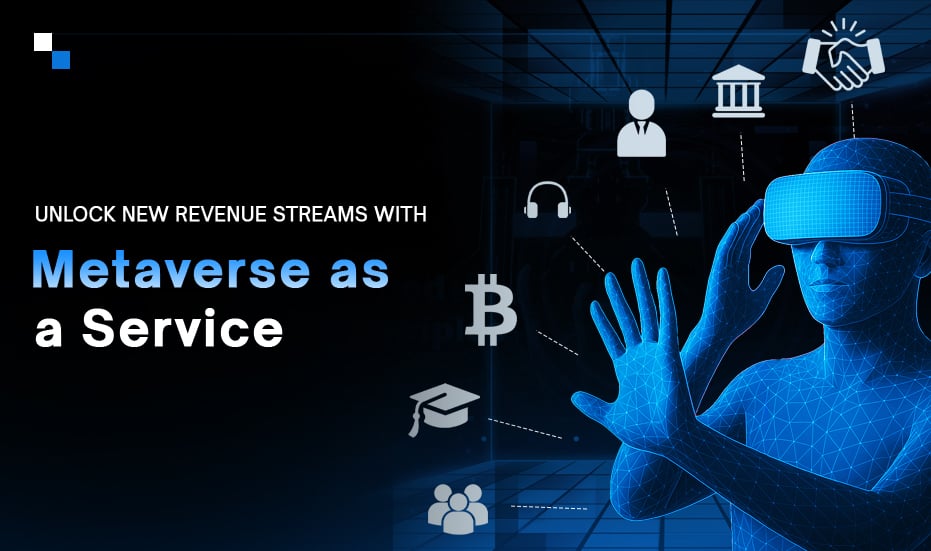The metaverse is not just a buzzword—it’s reshaping how industries operate, including real estate. As digital environments become more immersive and intertwined with real-world economics, real estate developers are discovering new, innovative ways to generate sales and attract investors by using the metaverse. In this article, we explore how metaverse development can be a powerful tool in marketing and driving sales for real estate projects.
What is the Metaverse in Real Estate?
The metaverse is a virtual space where individuals can interact with a computer-generated environment and other users through avatars. This virtual world merges elements of augmented reality (AR), virtual reality (VR), and blockchain technologies to create a digital environment that closely mirrors the real world. For real estate developers, the metaverse provides a digital realm where properties can be displayed, explored, and even traded.
While the concept might sound futuristic, the use of the metaverse in real estate is already becoming a reality. Virtual property tours, digital replicas of real-world buildings, and virtual showrooms are just some ways developers are utilizing this technology to connect with potential buyers. The metaverse can offer developers the opportunity to showcase properties on a global scale, allowing potential buyers to visit virtual versions of properties without the need for physical presence.
How the Metaverse Drives Sales for Real Estate Projects
Leveraging the metaverse in real estate isn’t just about creating a virtual experience—it’s about enhancing the buying process and offering a more personalized and immersive customer journey. Here’s how developers are generating sales by utilizing the metaverse:
1. Virtual Property Showcasing
The metaverse offers a fully immersive experience that allows potential buyers to tour properties in a way that is far more engaging than traditional methods like photos or 2D videos. By using VR headsets, clients can walk through properties as if they were physically there, examining every room, feature, and detail. This provides a level of engagement that traditional marketing materials simply cannot offer.
Furthermore, virtual property showcasing can occur from anywhere in the world. This is particularly valuable for attracting international buyers who might not be able to physically visit a property. They can experience the property in detail, making informed purchasing decisions from afar.
2. Engaging Potential Buyers with Interactive Features
In the metaverse, developers can go beyond static listings and photos. Interactive features like customization tools allow buyers to envision themselves living in or investing in a space. For instance, potential buyers can:
- Change finishes: Buyers can experiment with different interior finishes, choosing flooring, wall colors, fixtures, and even furniture.
- Alter layouts: Some properties allow for flexible floor plans that users can adjust to see how a space would feel with different layouts.
- Measure dimensions: Buyers can get precise measurements to understand the scale of rooms, features, and potential design changes.
This interaction creates a deeper connection with the property, encouraging buyer commitment and helping prospects feel more confident about making an investment.
3. Expanding Access with Virtual Events and Showrooms
Hosting virtual real estate events and creating virtual showrooms are key strategies for expanding visibility in the metaverse. By doing so, real estate developers can hold large-scale virtual events where potential buyers, investors, and even media outlets can attend. These events can include:
- Webinars and presentations on market trends, property developments, and investment opportunities.
- Interactive Q&A sessions where potential buyers can ask questions and receive real-time answers.
- Virtual networking events that allow prospective buyers to interact with developers and other potential investors.
Virtual showrooms can display properties in stunning 3D, showcasing everything from architectural designs to interior finishes. Prospects can explore these virtual spaces at their leisure, absorbing every detail and comparing various properties.
4. Blockchain and Smart Contracts for Real Estate Transactions
A significant advantage of the metaverse is its integration with blockchain technology. The blockchain allows for secure, transparent, and efficient real estate transactions using smart contracts. Here’s how this works:
- Digital ownership: In the metaverse, property ownership can be tokenized as NFTs (Non-Fungible Tokens). These tokens represent ownership of both physical and virtual real estate, providing an innovative way to buy and sell properties.
- Smart contracts: These digital contracts execute automatically when pre-set conditions are met. This streamlines transactions, reducing the time, effort, and costs associated with traditional real estate deals.
- Global marketplace: Blockchain enables cross-border transactions with ease, allowing developers to tap into international markets more effectively.
By utilizing blockchain and smart contracts, developers can simplify and secure the buying process, leading to faster transactions and improved trust between buyers and sellers.
Why Metaverse Development is Crucial for Real Estate Marketing
Incorporating metaverse technology into real estate marketing strategies has proven to be a game-changer. Here’s why more developers are integrating the metaverse into their sales processes:
1. Increased Reach and Engagement
The metaverse creates an avenue to engage with a global audience. Prospective buyers from different countries can attend virtual open houses, tour properties, and engage in live events without geographical limitations. This opens up a vast market for real estate developers, expanding beyond local or regional markets.
2. Enhanced Buyer Experience
The immersive and interactive nature of the metaverse allows developers to offer an enhanced buying experience. Buyers have more control over how they view properties, resulting in stronger emotional connections with the spaces they are considering. This, in turn, leads to higher conversion rates and shorter sales cycles.
3. Cost Efficiency
By hosting properties in a virtual space, developers can save on the costs associated with traditional marketing methods such as physical showrooms and print materials. Additionally, virtual tours reduce the need for constant property visits, minimizing travel costs for both developers and buyers.
The Future of Real Estate in the Metaverse
As the metaverse continues to evolve, it’s clear that its influence on the real estate market is only just beginning. The potential for virtual land to be as valuable as physical property is becoming a reality as the digital world becomes more ingrained in our daily lives. For real estate developers, this presents a unique opportunity to:
- Create virtual replicas of future developments, giving buyers a first-hand look at projects before they’re built.
- Engage with potential buyers early in the development cycle by providing virtual updates and allowing customization options.
- Explore new revenue streams, such as selling virtual land alongside real-world properties.
By embracing metaverse development, real estate professionals can remain at the cutting edge of technology and ahead of the competition.
Conclusion
The future of real estate is rapidly shifting towards the digital frontier, and metaverse development is at the forefront of this transformation. By incorporating immersive virtual property showrooms, interactive features, and secure blockchain-based transactions, developers can enhance the buyer experience, streamline operations, and reach a global audience like never before. As the metaverse evolves, it offers limitless opportunities for real estate professionals to stay competitive and innovative in an ever-changing market. Now is the time to embrace this new reality and position your real estate projects for success.





